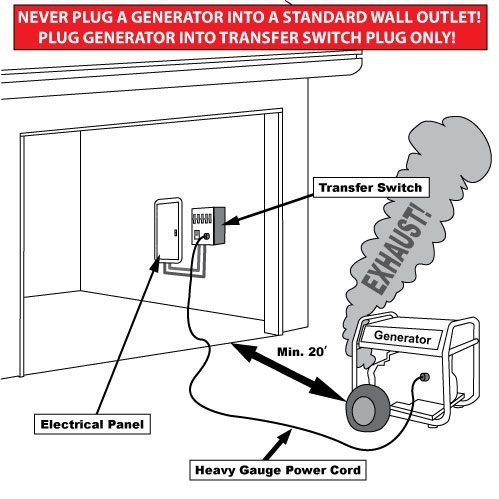Storm Season – When the lights go out
In our beautiful corner of the world, where windy, wet weather pairs with large trees, outages are an unfortunate fact of life.
We previously looked at your home’s emergency kit (here), and in this post we look at information sources and outage safety on the home front.
Outage Safety (outside the home)
 If a utility line is on the ground, stay AT LEAST 50 feet away! Treat any line on the ground like it is live! Distribution lines in your neighborhood often carry 7,200 Volts, and service lines to the home often carry 240 Volts–each can be deadly! Lines in contact with an object (vehicle, tree, handrail, etc.) can also be deadly and the object may give no indication of being electrified, so please use extreme caution and report the situation to our call center.
If a utility line is on the ground, stay AT LEAST 50 feet away! Treat any line on the ground like it is live! Distribution lines in your neighborhood often carry 7,200 Volts, and service lines to the home often carry 240 Volts–each can be deadly! Lines in contact with an object (vehicle, tree, handrail, etc.) can also be deadly and the object may give no indication of being electrified, so please use extreme caution and report the situation to our call center.- You can report outages or lines down by calling the PUD (360 385 5800) or reporting it via your SmartHub online portal. If no one has answered, we are likely processing many calls and/or turning the phones over so that all customer service representatives can field incoming calls. If you cannot get through initially, please wait about 5 minutes and try again. During a major outage Jefferson PUD will have a short outgoing message describing the outage and where it is. Generally, we will not provide information regarding when power will be restored during a major storm event.
- Drive carefully if you leave your home. If driving and traffic signals are out, treat the intersection as a four-way stop.
Outage Safety (inside the home)
 Do not use gasoline-powered machinery, such as generators in any enclosed space! Toxic fumes kill! Operate generators outdoors. Plug appliances directly into the generator using heavy duty, properly-grounded extension cords that aren’t worn or frayed. Do not connect a generator to your home without use of a professionally installed transfer switch. Learn more about generator safety here.
Do not use gasoline-powered machinery, such as generators in any enclosed space! Toxic fumes kill! Operate generators outdoors. Plug appliances directly into the generator using heavy duty, properly-grounded extension cords that aren’t worn or frayed. Do not connect a generator to your home without use of a professionally installed transfer switch. Learn more about generator safety here.- Do not use charcoal grills indoors. Dangerous carbon monoxide generated from them and other fuel-burning devices can and do kill people every year.
- Do not use a gas range or oven for room heating. A fuel-burning heater, such as a kerosene heater, requires plenty of ventilation to prevent buildup of harmful fumes. Place heaters on a hard, stable surface away from flammable materials. Never leave children or pets alone when using a portable heater.
- Keep freezer and refrigerator doors closed. Open them only when necessary. Food will usually stay frozen for 36-48 hours in a fully loaded freezer if you keep the door closed. A half-full freezer will generally keep food frozen for 24 hours.
- Turn off lights and appliances. When the lights go out, unplug sensitive electronic devices like computers to avoid a circuit overload when power is restored. Leave one light switch on so you’ll know when service returns.
Outage Information

- For larger outages, the PUD routinely updates its main webpage and social media feeds. Large outages present a obstacles for our substation and dispatch teams, and reports from the field are posted to an advisory bar on jeffpud.org and on our Facebook, Nextdoor pages.
- Subscribe for NIXLE updates from Jefferson County Emergency Management. NIXLE is a free text and email service providing timely information about regional emergency events. Register here.
- Listen to local radio stations such as KPTZ (91.9 FM) or KSQM (91.5 FM) for emergency management status updates.
 Do not use gasoline-powered machinery, such as generators in any enclosed space! Toxic fumes kill! Operate generators outdoors. Plug appliances directly into the generator using heavy duty, properly-grounded extension cords that aren’t worn or frayed. Do not connect a generator to your home without use of a professionally installed transfer switch. Learn more about generator safety
Do not use gasoline-powered machinery, such as generators in any enclosed space! Toxic fumes kill! Operate generators outdoors. Plug appliances directly into the generator using heavy duty, properly-grounded extension cords that aren’t worn or frayed. Do not connect a generator to your home without use of a professionally installed transfer switch. Learn more about generator safety